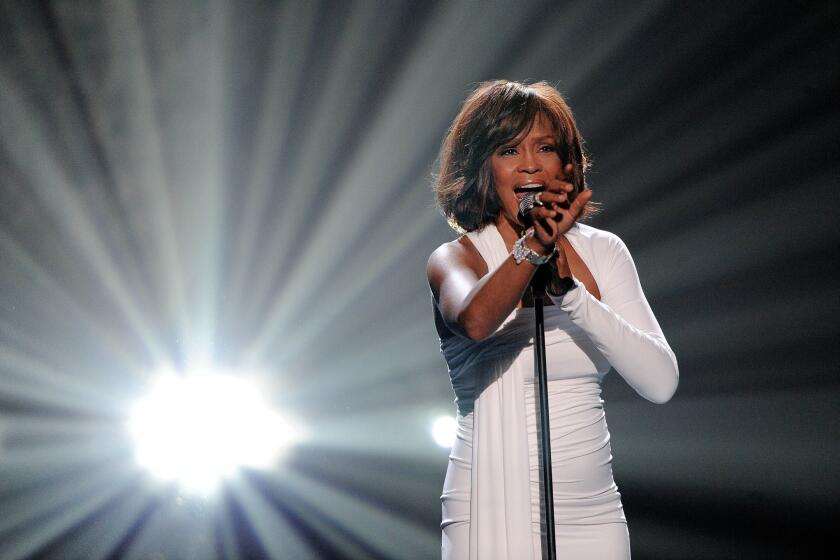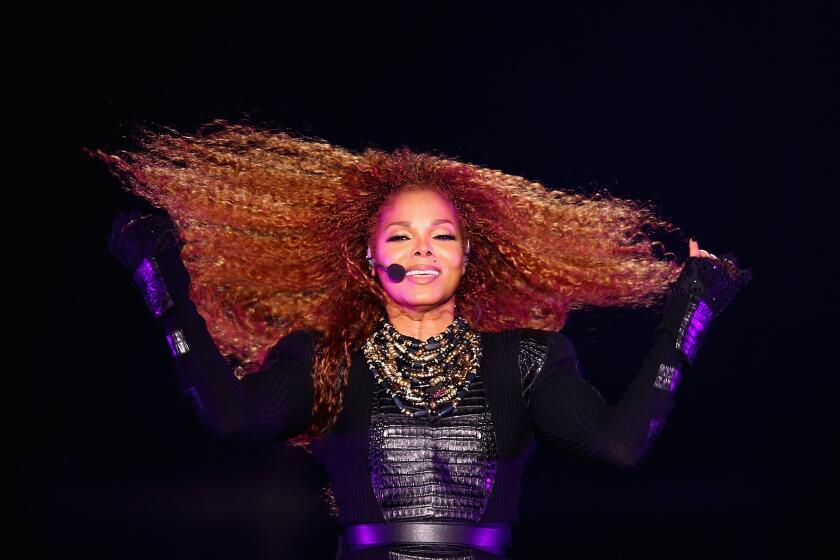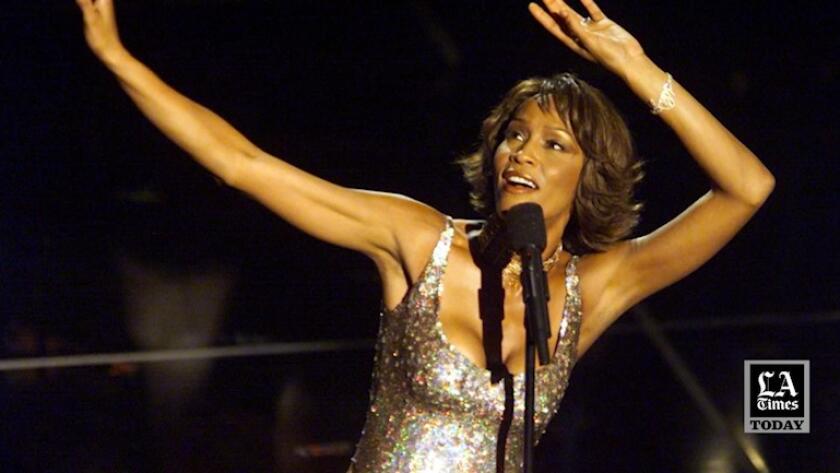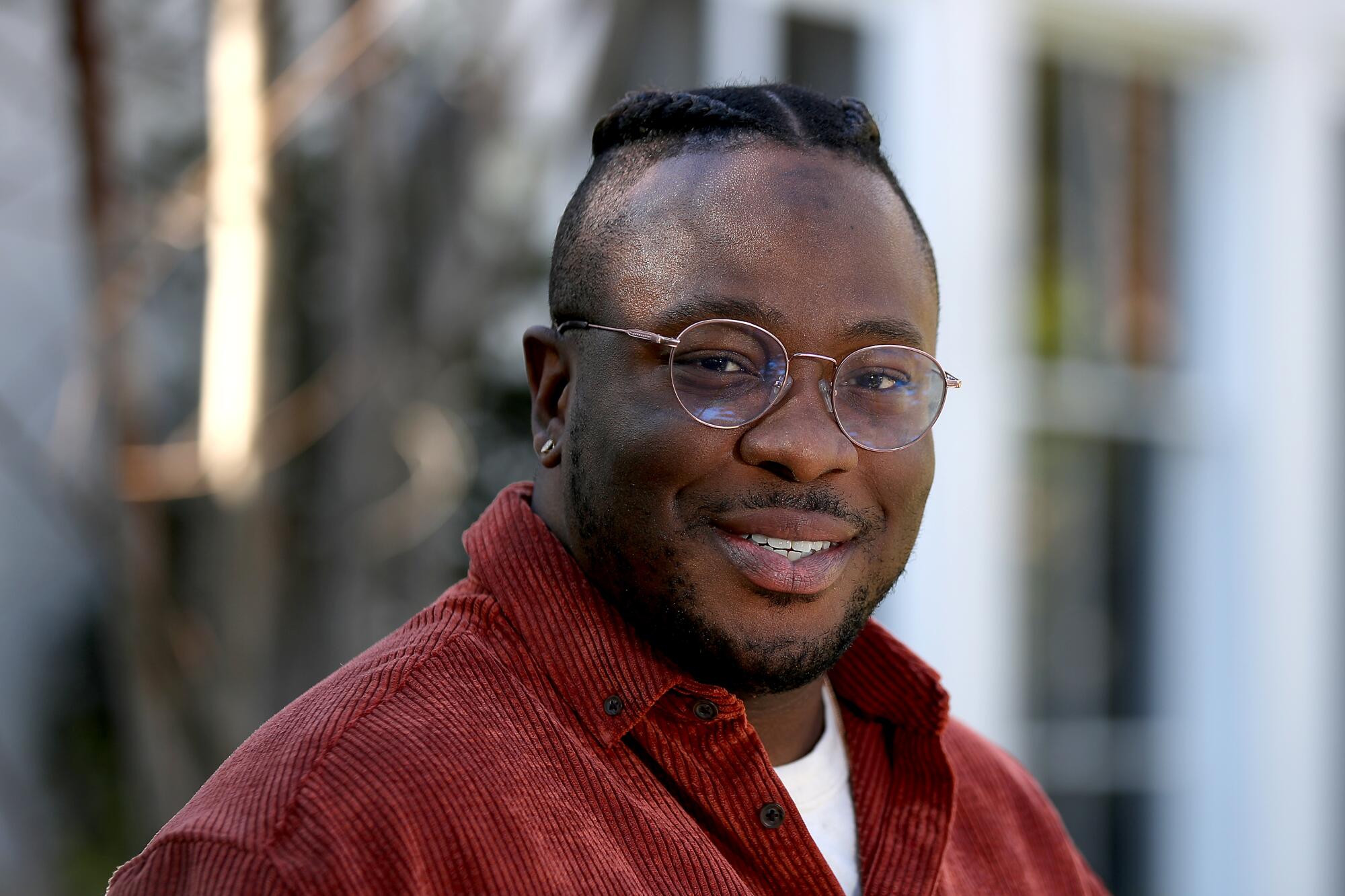
- Share via
Gerrick D. Kennedy remembers Whitney Houston’s death all too clearly. It was 10 years ago this month. He was a 24-year-old music reporter with the Los Angeles Times covering a pre-Grammy event when he unexpectedly spoke with the disheveled singer after observing her erratic behavior in the ballroom of the Beverly Hilton hotel. Forty-eight hours later, she was found dead in her hotel room. Kennedy’s article about the messy scene he’d witnessed became a widely circulated, national story and his first major scoop as a professional journalist. But as a Houston fan who was emotionally invested in her work, Kennedy felt conflicted. His instinct to protect an artist he loved ran counter to his job as a reporter.
That ethical conundrum and the complex questions it raised were an early indicator of the soul-searching to come. Kennedy’s new book, “Didn’t We Almost Have It All: In Defense of Whitney Houston,” is a candid exploration of Houston’s talent, dysfunction and fame beyond the tabloid headlines about drug addiction and fights with her husband, Bobby Brown. It seriously considers her impact on music, pop culture, race and the author’s own life as a queer Black man. Kennedy, who left The Times in 2019, spoke to his former music editor Lorraine Ali (now aThe Times’ television critic) about their coverage of Houston’s 2012 death, her misunderstood life and what we can still learn from Houston.
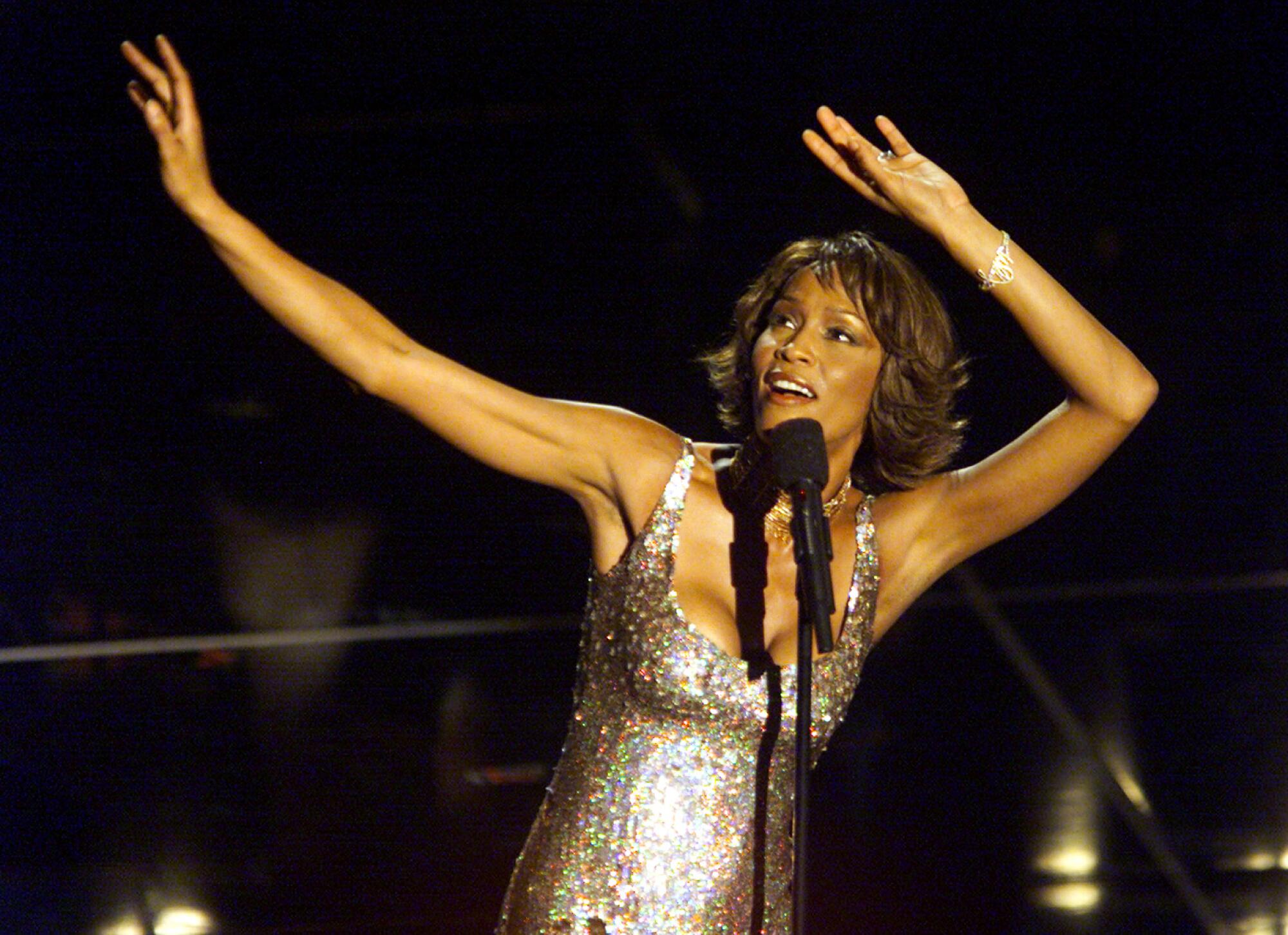
‘Didn’t We Almost Have It All,’ by Gerrick Kennedy, casts Whitney Houston in a warmer light and asks: What if she had come up in a more tolerant era?
Let’s start with the subtitle of your book: Why does Whitney Houston need defending?
So much of the focus on Whitney is rooted in tragedy. And when her triumphs are talked about, it’s really limited to two things: the National Anthem and “I Will Always Love You.” And that’s not the totality of who she was. Celebration of her is spoken about in terms of the records that she broke and those early moments in the ’80s, but nobody was doing any scholarship around her albums or her influence or how she created a new template for singers and pop music or the role that she played in elevating R&B. I was bothered by that.
The book explores the emotional and cultural context of Houston and her music and how we as a society treated her. But that’s not the narrative you initially envisioned.
It started out as an exploration of the last part of her life, which was a time when she was trying to live like a normal person, away from the spotlight. There was something compelling about this woman who was our first Black princess and all-American sweetheart, who was one of the most famous singers on the planet, pulling back from it all. She had some challenges but was going to live the simple life after her divorce. But the tabloids had crossed over into blogs and the ridicule was constant, so I wanted to explore all that she had struggled with during that time period. But when I started doing the reporting it was really unfulfilling because it felt like I was going to end up writing a book that I didn’t want to read.
And what book is that?
I did not want to do a biography. Instead, it was more important to talk about what she meant to us, what she meant to Black people, to queer people, what she meant to the world at large ... and what we did to her and how we treated her. Having a conversation around all that meant I had to talk about race in America, sexuality, addiction, mental health ... and how our thinking around all that is finally shifting. I mean, we’ve lost so many musicians and public figures that culturally maybe we’re starting to realize, “Oh, maybe it’s us. Maybe we’re not being kind or as accepting as we could be when discussing addiction.”
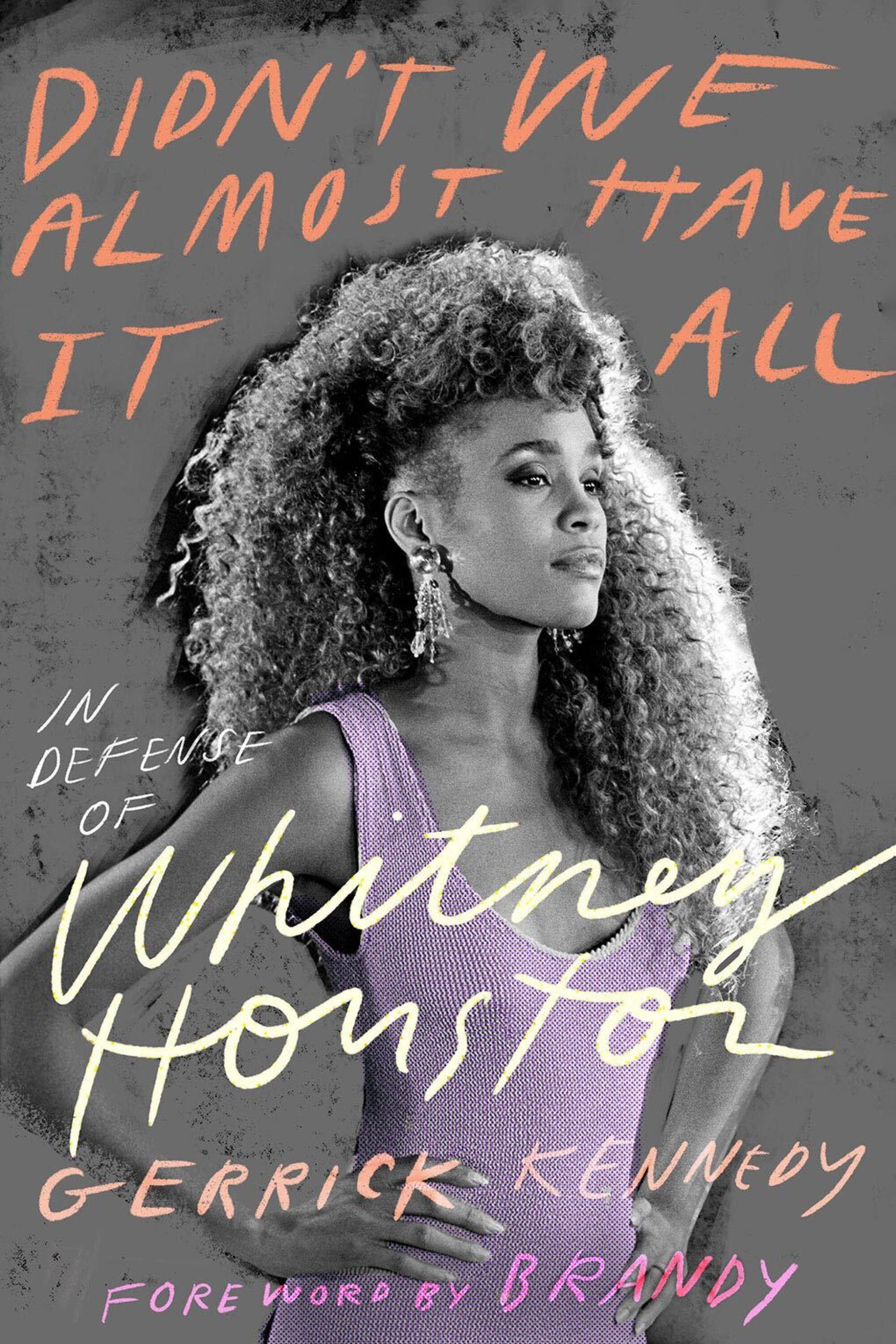
Can you give me an example of how things might be shifting?
There’s an interesting parallel with Prince. We’re grieving his death and the loss of his talent, even though we weren’t always excited about those last years of music. But one thing we don’t ever do is talk about him as an addict. That’s not the story we gave him. We see him as the victim of drugs, right? But with Whitney, we saw her as someone who was making active choices to destroy herself. We were so ashamed of her for doing that and disappointed in her for not sustaining a comeback or reclaiming her former greatness. Why can’t she sing “I Will Always Love You” like she did in 92?! There was something so cruel about that [dynamic] and it needs reflection. It’s great that culturally we’re now using language like accountability and harm reduction, but I think, “God, what if we were doing this when she was here?”
We were working together when Houston died on Feb.11, 2012. I was the newly installed music editor and your career was just starting when you became the point person for covering the chaos around her death. Considering the pressure and your personal attachment to her music, you handled it remarkably well.
I was an intern on my fourth day at the paper when Michael [Jackson] died, so I did have some experience of reporting on the death of an artist I respected. But it was much different with Whitney because a couple days prior to her death, I was at the Beverly Hilton reporting a pre-Grammy story when I spotted her there behaving erratically. She was not the story I went there to report, so it felt unfair, even unkind, to write about that scene. But I also felt we had to acknowledge it. ... I was a witness. I remember really clearly you saying just to write what you saw, nothing else. And that’s what we did.
Whitney Houston, who reigned as pop music’s queen until her majestic voice and regal image were ravaged by drug use, erratic behavior and a tumultuous marriage to singer Bobby Brown, has died.
And within 48 hours she was found lifeless in her hotel bathtub. The press suspected a drug overdose (it was later ruled an accidental drowning with cocaine as a contributing factor), so all of a sudden the media was combing your story for clues to what might have killed her.
By the next morning I had all these [press] requests ... but it was still my job to cover the Grammys backstage, so I was [at the Staples Center] when I had that first call with our L.A. Times communications person and a quick media training session over the phone. It was just surreal. My first TV experience was being on the “Today” show at 5 o’clock in the morning. Go look at the footage. I’m a deer in headlights and there’s Matt Lauer on the other end: “Tell me what you saw, Gerrick.” The next few weeks I did that over and over, not even thinking about the toll it was taking on me personally. As a reporter I just did what I had to do.
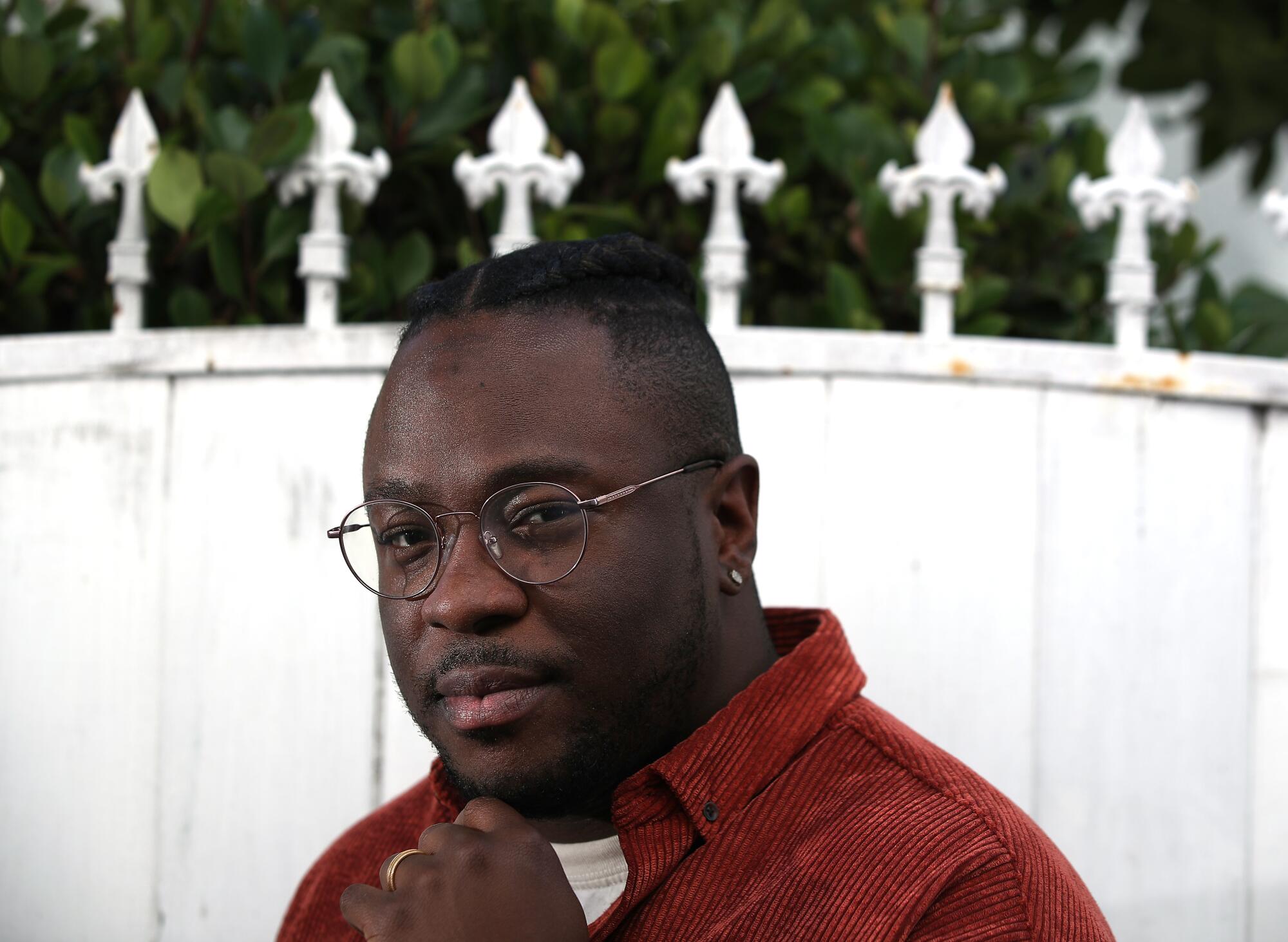
When did the gravity of her death finally hit you?
I don’t know what number interview I was on, but it was CNN. The producers [had] three pages’ worth of questions. Relentless! They asked like four or five times, “[Did she] smell like weed?” “Could you tell if there was [cocaine] residue on her nose?” I of course didn’t know the answers to any of that. It was just past the hour mark when [I was] asked, “How do you feel about her being dead?” and then I broke down and started weeping. The producer apologized and asked if I wanted to continue. I was like, no more.
Pop music critics and historians, who were and often still are white men, are renown for dismissing women like Houston who don’t write their own music. Yet she has influenced generations of singers in her wake.
It’s true Whitney wasn’t producing or writing all her music, but what she did in terms of introducing melisma singing into mainstream pop cannot be understated. That high falsetto ... today we wouldn’t have Beyoncé, or Adele, or Ariana Grande or Mariah Carey without her. We just wouldn’t. It’s easy to dismiss her influence because we don’t see her as a savant the way that we see Prince or Michael Jackson or Madonna. But as a gospel-trained vocalist, every decision she made about how to sing a song came from her ... and that is a talent and skill that should be celebrated. Instead, we talk about how she couldn’t keep hitting those notes in the end. Sure, but lots of artists can’t keep hitting the same notes for 30-something years.
Does this book feel like you’re setting the record straight, or at least affording her story more nuance?
It’s so strange. I was never really in a space where I was given permission to do cultural criticism. Now I’m carrying a whole book with my voice and my thoughts ... and it’s really intimidating! It was scary [writing], but I needed to tell her story so it was critical. Still I’d have moments where I’m like: “Am I doing too much?” Because I want to write about where she came from, but I can’t write about Newark without first writing about the great migration that brought her grandfather there, and then the decline of Black American cities, and then her parents wanting to relocate because of the riots. The riots were part of her history. ... I wanted people to understand the magnitude of the moment when that young lady appeared on “The Merv Griffin Show” with all this promise and sang “Home” from “The Wiz.” I needed to explain that song was from a Black musical that her mother was a part of, and like gospel singing, it was passed on to her. If you understand that then you understand the sheer glory of what we were witnessing.
Like Houston, R&B doesn’t seem to get the same respect in academic circles as other genres.
That reality was the fire under my feet every single day. Everyone who knows me knows how much I care about the genre, how important I think it is, how influential I think it is and how cross-generational. But I also had to reckon with the fact that I am a Black man in this space covering music. So most of the time my phone is ringing and it’s somebody who wants me to write about hip-hop. I understand that. I don’t take offense to it ... OK, sometimes I do [laughs]. But for the most part, it’s a reminder of what hip-hop created: Despite how the mainstream reacted to it [at first], it has moved to this dominant force that people study, no matter if they’re white, Black ... it’s treated with respect, as it should be. It moved the culture, and my first book is about one of those pioneers [“Parental Discretion Is Advised: The Rise of N.W.A and the Dawn of Gangsta Rap”]. But to not have that same [reverence] for R&B felt like such an insult that I had to do something.
Our panel of experts discuss this weekend’s flawed but engrossing ‘Janet’ docuseries.
We’ve talked about Whitney’s detractors, but she has fiercely protective fans too. Have you caught flak from them?
I appreciate their love and respect for her, but I don’t agree with this idea that no one should be talking about her. ... They’re asking, “Why is there another book?” There’s an assumption based on the way she was treated when she was alive that every book about her is trashy and salacious. I understand. She [was fodder] during the rise of tabloid culture. But I wanted to challenge the way we treated her and some people weren’t even ready for that. It’s the [kind of] book that doesn’t exist for a lot of Black artists, and definitely not for Black women, and not at all for this genre of music. You rarely even see it in hip-hop. ... We need to allow ourselves to have more cultural studies on R&B music or on women in pop who aren’t Madonna. The reality is that it’s really difficult to get a book done on a Black artist, written by a Black person. It’s sad but it is a fact.
What’s been the most surprising reaction from folks who’ve read the book?
A collective release that something different has been [written] about Whitney. It’s excitement and relief. The original title of the book was “Exhale” because I desperately thought we all needed to do that with her, and she was always trying to find relief. The title was switched to reference a famous song she made, a song that connected with a lot of us. It’s a reminder that if we’d treated her differently we could have had a different Whitney, even if she didn’t overcome her challenges. Maybe if she hadn’t experienced the judgment and the shame, other choices would have been made. We don’t know that, but I’d like to think it’s possible.
- Share via
Watch L.A. Times Today at 7 p.m. on Spectrum News 1 on Channel 1 or live stream on the Spectrum News App. Palos Verdes Peninsula and Orange County viewers can watch on Cox Systems on channel 99.
More to Read
Sign up for our Book Club newsletter
Get the latest news, events and more from the Los Angeles Times Book Club, and help us get L.A. reading and talking.
You may occasionally receive promotional content from the Los Angeles Times.
